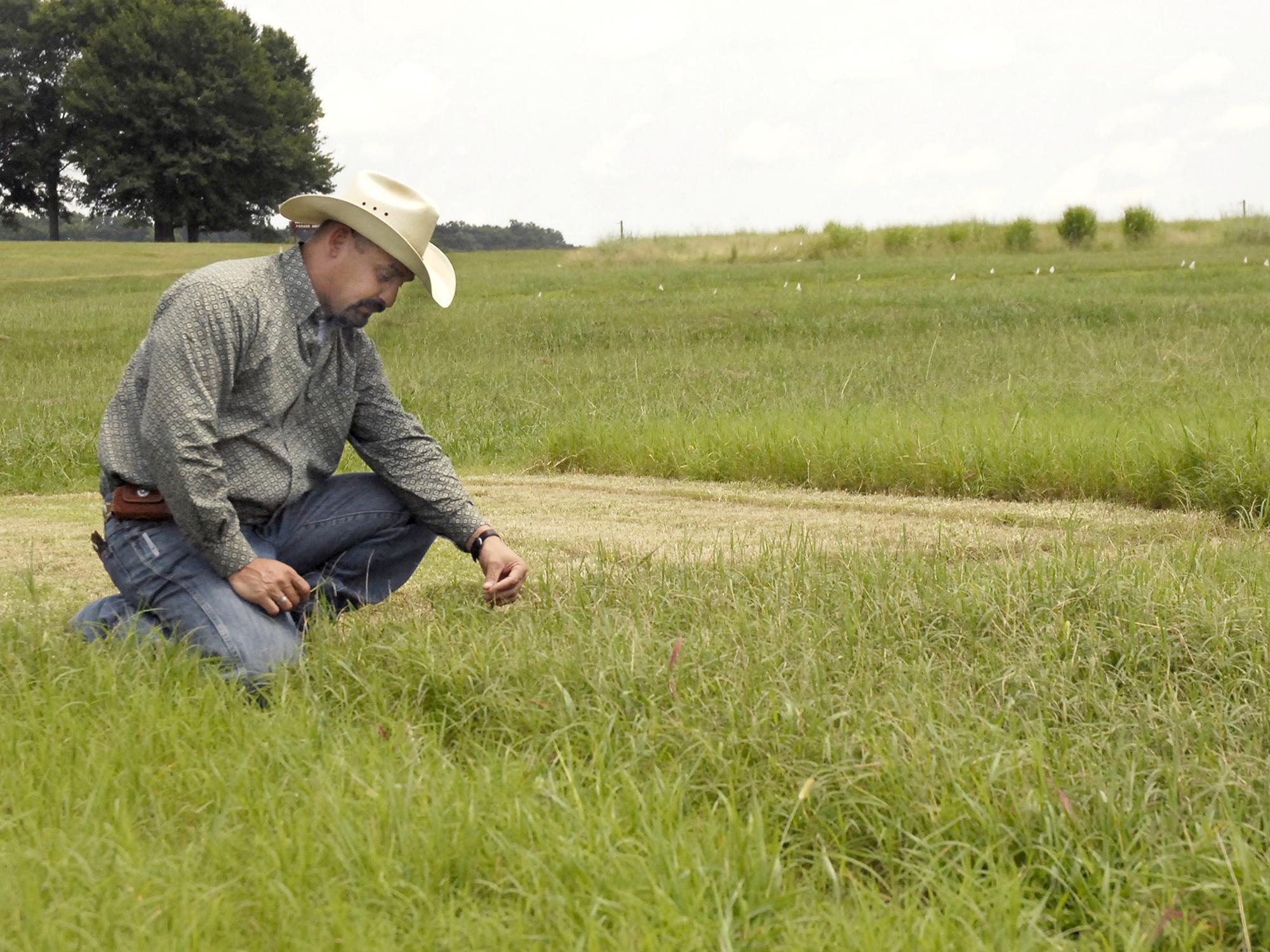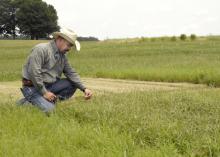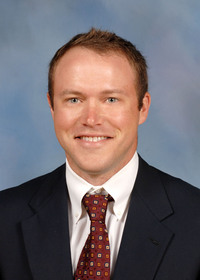Information Possibly Outdated
The information presented on this page was originally released on August 9, 2013. It may not be outdated, but please search our site for more current information. If you plan to quote or reference this information in a publication, please check with the Extension specialist or author before proceeding.
Pastures, forages face new battles
MISSISSIPPI STATE – Forage producers and their livestock are not the only ones admiring the plentiful bermudagrass fields and pastures across the state this year.
Another invasive insect has arrived in Mississippi, this time to take a bite out of potentially strong hay yields. Stem maggots are joining the list of invasive species in the state that includes fire ants, fall armyworms, kudzu bugs, and once upon a time, boll weevils.
Blake Layton, entomologist with the Mississippi State University Extension Service, said stem maggots probably arrived in 2011, one year after they were first detected in Georgia. 2012 was the first year Mississippi entomologists documented their activity throughout the state. The mature flies are similar to horn flies in size and shape, and they have yellow abdomens.
“They kill the last two leaves growing out of the shoot on bermudagrass,” he said. “Once the late fall arrives, they can kill side shoots too. Grass looks like it has had a frost.”
Layton said hay producers will not want to spray for these new invaders because control will require two treatments and will not be cost-effective.
“Most producers will go ahead and cut the grass or hay when the populations reach damaging levels,” he said. “They are not nearly as damaging as fall armyworms, which growers do control with insecticide treatments.”
Layton said the state has had minimal fall armyworm activity this year.
“While their numbers have been lighter than normal so far, there is still plenty of time for populations to increase,” he said. “The good news is we have a lot of effective, affordable insecticides to control them.”
Layton said armyworms are cyclic from year to year. During a bad year, outbreaks can start in mid-July. Since they do not overwinter in the state, they have to migrate back as the summer progresses. Prevailing winds could be a major factor in bringing them north.
Rocky Lemus, Extension forage specialist, said some fertility research in Starkville shows more stem maggot damage on plots that received higher nitrogen amounts compared with lower rates or no applications. Once the damage is done, the grass stops growing, making harvest the logical option.
Lemus said frequent rains have helped grasses grow, but the extra moisture has also contributed to increased disease pressure in recent weeks.
“Bermudagrass hay fields also are being heavily infested with leaf-spot disease,” he said. “Ideal conditions for leaf spot include moderate to cool temperatures and abundant moisture. Damage is usually more severe on stressed grass.”
Conditions that appear to increase susceptibility include soil compaction, heavy thatch, nitrogen and potassium imbalances, and water stress like drought or excessive water.
“Fungicides are not an option for use on forage grasses,” he said. “One way to reduce disease pressure is burning infected biomass, cutting it for hay or grazing it. Leaf spot has also made fields susceptible to damage from the stem maggot as well.”
Lemus said maintaining soil fertility might be the best option to preserve plant health.
“Livestock producers are having a good fall with plenty of grass in pastures as well as excellent conditions for hay production,” he said. “That removes a lot of the worries as winter approaches.”
John Michael Riley, Extension agricultural economist, said hay prices have been stable for the past few years, even with the vast drought that encompassed so much of the U.S. last year.
“Hay movement typically covers short distances, and Mississippi producers, for the most part, had a good crop last year,” he said. “Hay that was sent to drought-stricken areas most likely brought a premium.”
-30-
Released: August 9, 2013
Contact: Dr. Rocky Lemus, 662-325-7718





